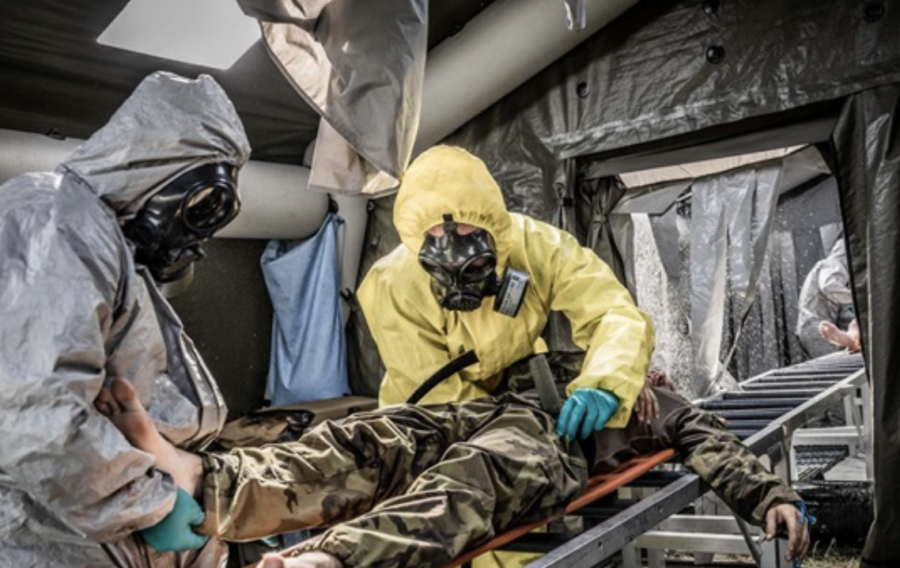
Royal Navy medics have trained in dealing with the aftermath of chemical, biological, radiological and nuclear (CBRN) attacks with NATO allies in the Czech Republic.
Medical experts from 13 nations gathered in Tisá, close to the German border, to work together on treatments, decontamination and dealing with casualties in the wake of a CBRN attack.
Across four days, personnel shared knowledge and dealt with mock casualties at the site of an old chemical and biological testing ground, while the Royal Navy and Royal Marines combined medical team laid on a demonstration of the techniques and procedures the UK employs.
Commando Forward Surgical Group of North Devon-based Commando Logistic Regiment deploy wherever Royal Marines do, no matter how extreme the environment. Their responsibility is to treat causalities in the field and, as a result, must be highly efficient at setting up medical treatment facilities at a moment’s notice.
During the exercises in the Czech Republic, they were at the forefront of the joint casualty decontamination area, which must be set up rapidly to deal with people exposed to a CBRN attack, decontaminating them, and giving them basic medical treatment before passing them onto the next level of medical care.
“Scenarios like this are needed to keep us grounded and prepared to efficiently treat and care for real-time CBRN casualties we may expect during operations,” said Medical Assistant Jack Franklin.
“As the casualty decontamination area medical team is very small, everyone must be able to take a step back, think and assess the situation.
“This was crucial for the triage medic at the front of the facility who decides, based on protocol who receives treatment first. In real-time this will be a very difficult job.
“In battle, it’s realistic to consider that not everyone is going to survive. Prioritising a casualty with a better chance of survival, over a casualty with serious injuries is key to prevent quickly consuming our limited time and resources that can prevent us treating other multiple casualties for injuries that we can expect to survive.”
If you would like to join our community and read more articles like this then please click here.







